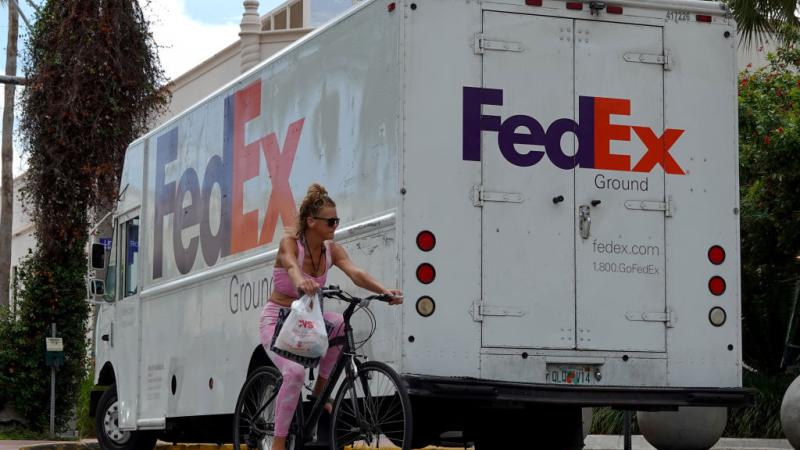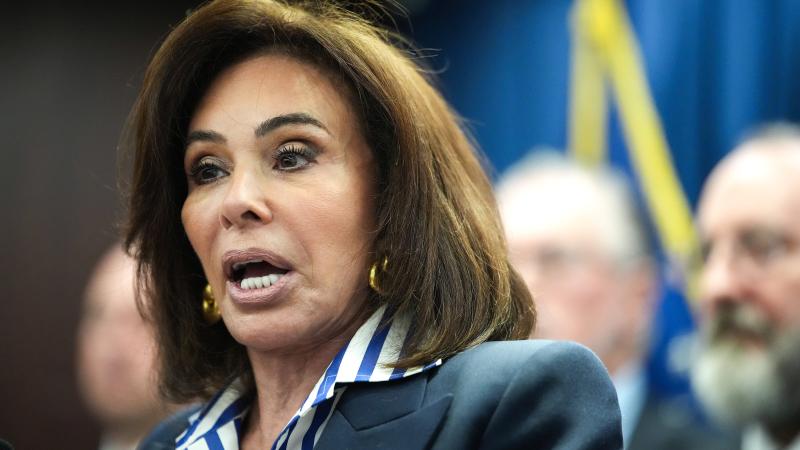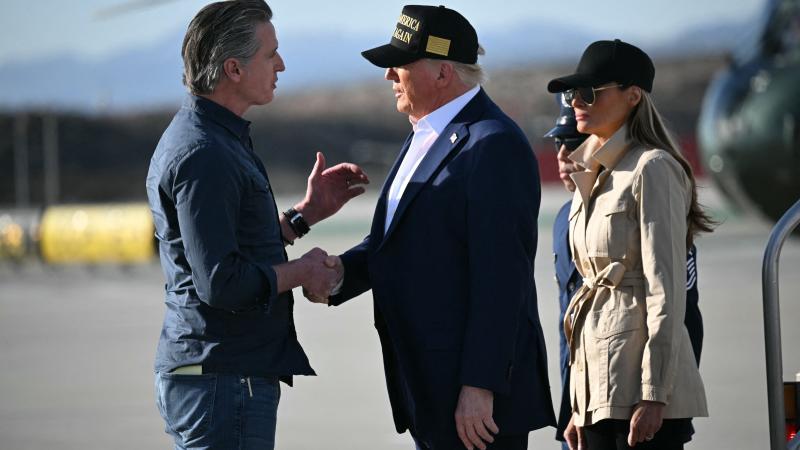Lake records trial begins with focus on voter privacy over signatures of ballot affidavit envelopes
"We're gonna prove that mail-in ballots are not safe, are not secure, that many don't have signatures, that many of those signatures do not match," Kari Lake said.
Former GOP Arizona gubernatorial candidate Kari Lake’s public records trial against Maricopa County over ballot affidavit envelopes has begun with a focus on voter privacy and will continue next week.
On Thursday, Lake was in the courtroom for her two-day trial before Judge John Hannah of the Superior Court of Arizona, Maricopa County, regarding a public records request Lake filed under Arizona's Public Records law.
In March, Lake submitted a public records request of ballot affidavit envelopes from the 2022 general election, but the Maricopa County’s Recorders Office denied her request in April.
Lake wants to review the envelopes, which voters write their signatures on when casting mail-in ballots, to determine if the signatures match voters’ signatures that are on file with the county.
Lake told Steve Bannon’s "War Room" TV show prior to the beginning of trial on Thursday that if her team wins the case and is able to review the envelopes, then “we’re gonna prove that mail-in ballots are not safe, are not secure, that many don't have signatures, that many of those signatures do not match.”
The Maricopa County’s Recorders Office has argued the ballot affidavit signatures are part of the voter registration record and are deemed confidential by state law with some exceptions, which they say Lake doesn't meet.
Hannah refuted the argument during a June hearing over Maricopa County’s motion to dismiss Lake’s case, citing that county recorders usually include ballot affidavit envelopes in voter registration records, but not because it is required by law.
Maricopa County Recorder Stephen Richer posted on X on Tuesday that Lake “is requesting that all early ballot envelopes — including the voter’s name, address, phone number, and signature — be made public. No county in Arizona has ever done this since early voting in Arizona in 1992. I agree with that long-standing practice."
“I believe these envelopes are not public record according to state statute. And I believe that making them public would have a chilling effect on voting, would weaken the security controls on early voting, and would open the door to voter harassment,” Richer added.
Lake's attorney, Bryan Blehm argued in his opening statement on Thursday that the envelope “signatures are made public, your honor, by the person who signed them and dropped them into the mail. They’re dropped into the public stream of commerce and hence, we argue, that the state cannot overcome its interests of the state argument because the individuals who signed these ballot affidavit envelopes, your honor, have waived any right to confidentiality by making those signatures public.”
Richer testified at the trial on Thursday that some people have documents recorded by his office without realizing that they will become public record.
He said during his testimony that there have been people who have recorded their “divorce decrees that will reveal salacious details of the situation only to then later realize that, like, ‘Oh gosh, that’s part of the public record that anyone can see?’” and ask for the document to be taken down, which the Recorder’s Office cannot do without a court order.
Richer added that “there are some people who do not realize that when they record a document, it becomes part of the public record.”
In response to Richer testifying that the envelopes released as public records could be used by foreign agents, former Arizona assistant attorney general Jen Wright posted on X on Thursday that “every individual [Maricopa County] mortgage is publicly available on the [Maricopa County’s Recorders Office] website.
“It includes:
- Name
- Home address
- Lender
- Loan amount
- Loan number
- Signature
“It’s accessible from world. wide. web. Foreign agents don’t need ballot affidavits.”
Maricopa County attorney Joseph La Rue said at the end of the trial session on Thursday that they have two witnesses to call on Monday.
Hannah disqualified Blehm’s three expert witnesses regarding the 2022 election process, citing lack of relevance.
Lake has been in court over the past several months challenging the results of the 2022 gubernatorial election after losing to current Democrat Gov. Katie Hobbs. She has pointed out major problems with the signature verification process for mail-in ballots and argued many voters in Arizona were disenfranchised on Election Day, when voting machine errors occurred in at least 60% of the voting centers in Maricopa County.
She has vowed to take her election lawsuit all the way to the U.S. Supreme Court if necessary.
Lake had a case heard before the Court of Appeals for the Ninth Circuit earlier this month regarding the vulnerabilities of ballot tabulation machines.
She appealed the rejection of her lawsuit by U.S. District Court Judge John Tuchi in August 2022, who said it had "conjectural allegations of potential injuries," according to AZ Central. It is unclear when a decision in the Ninth Circuit appellate case will be delivered.
Lake's public Records trial will resume on Monday at 9 a.m. Mountain Standard Time, or noon Eastern Daylight Time. Hannah said that the court will reconvene with hearing Maricopa County’s witnesses and closing arguments from both sides.
The Facts Inside Our Reporter's Notebook
Links
- trial before Judge John Hannah
- Lake submitted a public records request
- Lake told Steve Bannonâs War Room TV show
- Maricopa Countyâs Recorders Office has argued
- Hannah refuted
- Stephen Richer posted on X
- argued in his opening statement
- Richer testified at the trial
- He said during his testimony
- Richer added
- Jen Wright posted on X
- Joseph La Rue said
- Hannah denied
- Hannah said
- occurred
- Lake had a case heard
- AZ Central















